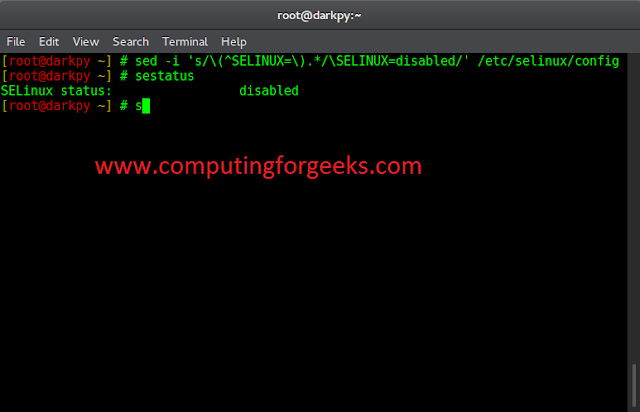Laravel 9 Vue js dependent dropdown example; Through this tutorial, we will learn how to make dependent dropdown with Vue js components in laravel.
Laravel 9 Vue Js Dependent DropDown Tutorial with Example
Follow the below steps and build dependent dropdown with Vue.js and Laravel 9:
- Step 1: Install Laravel 9 App
- Step 2: Connecting App to Database
- Step 3: Create Migration Files
- Step 4: Create Models
- Step 5: NPM Configuration
- Step 6: Add Routes
- Step 7: Create Controller By Command
- Step 8: Create Vue Component
- Step 9: Initialize Vue Components
- Step 10: Run Development Server
Step 1: Install Laravel 9 App
In this step, we need to install laravel latest application setup, So open terminal OR command prompt and execute the following command:
composer create-project --prefer-dist laravel/laravel blog
Step 2: Connecting App to Database
After successfully install laravel app, Go to project .env file and set up database credentials:
DB_CONNECTION=mysql
DB_HOST=127.0.0.1
DB_PORT=3306
DB_DATABASE=here database name here
DB_USERNAME=here database username here
DB_PASSWORD=here database password here
Step 3: Create Migration Files
Next step, we need to run the following command:
php artisan make:migration create_countries_states_table
Now open create_countries_states_table.php migration file from database>migrations and replace up() function with the following code:
<?php
use Illuminate\Support\Facades\Schema;
use Illuminate\Database\Schema\Blueprint;
use Illuminate\Database\Migrations\Migration;
class CreateCountriesStatesTable extends Migration
{
/**
* Run the migrations.
*
* @return void
*/
public function up()
{
Schema::create('countries', function (Blueprint $table) {
$table->bigIncrements('id');
$table->string('name');
$table->timestamps();
});
Schema::create('states', function (Blueprint $table) {
$table->bigIncrements('id');
$table->integer('country_id');
$table->string('name');
$table->timestamps();
});
}
/**
* Reverse the migrations.
*
* @return void
*/
public function down()
{
Schema::dropIfExists('countries');
Schema::dropIfExists('states');
}
}
Next, migrate the table using the below command:
php artisan migrate
Step 4: Create Models
Use the following laravel artisan commands to build country and state model inside laravel app:
php artisan make:model Country
php artisan make:model State
Step 5: NPM Configuration
We need to setup Vue and install Vue dependencies using NPM. So run the following command on command prompt:
Install all Vue dependencies:
npm install
To calling Laravel API routes. we need to install vue-axios. So use run the following command on command prompt:
npm install vue-axios --save
After installing all dependencies run this command:
npm run watch
Step 6: Add Routes
Next step, go to routes folder and open web.php file and add the following routes into file:
routes/web.php
use App\Http\Controllers\CountryStateController;
Route::get('get_countries', [CountryStateController::class, 'getCountries']);
Route::post('get_states', [CountryStateController::class, 'getStates']);
Step 7: Create Controller By Command
Next step, open command prompt and run the following command to create a controller by an artisan:
php artisan make:controller CountryStateController
After that, go to app\Http\Controllers and open CountryStateController.php file. Then update the following code into CountryStateController.php file:
<?php
namespace App\Http\Controllers;
use Illuminate\Http\Request;
use App\Models\Country;
use App\Models\State;
class CountryStateController extends Controller
{
/**
* Retrieve countries data
*
* @return void
*/
public function getCountries()
{
$data = Country::get();
return response()->json($data);
}
/**
* Retrieve states data
*
*/
public function getStates(Request $request)
{
$data = State::where('country_id', $request->country_id)->get();
return response()->json($data);
}
}
Step 8: Create Vue Component
Next step, go to resources/assets/js/components folder and create a filed called DropdownComponent.vue.
And update the following code into DropdownComponent.vue. components file:
<template>
<div class="container">
<div class="text-center" style="margin: 20px 0px 20px 0px;">
<span class="text-secondary">Laravel 9 vue.js Dependent Dropdown Example</span>
</div>
<div class="row justify-content-center" style="margin: 20px 0px 20px 0px;">
<div class="col-md-8">
<div class="card">
<div class="card-body">
<div class="form-group">
<label>Select Country:</label>
<select class='form-control' v-model='country' @change='getStates()'>
<option value='0' >Select Country</option>
<option v-for='data in countries' :value='data.id'>{{ data.name }}</option>
</select>
</div>
<div class="form-group">
<label>Select State:</label>
<select class='form-control' v-model='state'>
<option value='0' >Select State</option>
<option v-for='data in states' :value='data.id'>{{ data.name }}</option>
</select>
</div>
</div>
</div>
</div>
</div>
</div>
</template>
<script>
export default {
data(){
return {
country: 0,
countries: [],
state: 0,
states: []
}
},
methods:{
getCountries: function(){
axios.get('/get_countries')
.then(function (response) {
this.countries = response.data;
}.bind(this));
},
getStates: function() {
axios.get('/get_states',{
params: {
country_id: this.country
}
}).then(function(response){
this.states = response.data;
}.bind(this));
}
},
created: function(){
this.getCountries()
}
}
</script>
Now open resources/assets/js/app.js and include the FileUpload.vue component like this:app.js
require('./bootstrap');
window.Vue = require('vue');
Vue.component('dropdown-component', require('./components/DropdownComponent.vue').default);
const app = new Vue({
el: '#app',
});
Step 9: Initialize Vue Components
In this step, navigate to resources/views and create one folder named layouts. Inside this folder create one blade view file named app.blade.php file.
Next, Navigate to resources/views/layouts and open app.blade.php file. Then update the following code into app.blade.php file as follow:
<!doctype html>
<html lang="{{ str_replace('_', '-', app()->getLocale()) }}">
<head>
<meta charset="utf-8">
<meta name="viewport" content="width=device-width, initial-scale=1">
<meta name="csrf-token" value="{{ csrf_token() }}"/>
<title>How to make dependent dropdown with Vue. js and Laravel
- Tutsmake.com</title>
<link href="https://fonts.googleapis.com/css?family=Nunito:200,600" rel="stylesheet" type="text/css">
<link href="{{ mix('css/app.css') }}" type="text/css" rel="stylesheet"/>
</head>
<body>
<div id="app">
<dropdown-component></dropdown-component>
</div>
<script src="{{ mix('js/app.js') }}" type="text/javascript"></script>
</body>
</html>
Step 10: Run Development Server
Run the following command to start development server:
npm run dev
or
npm run watch
Conclusion
In this tutorial, we have learned how to build dependent dropdown app with Vue js in laravel.
The preview of laravel 9 vue js dependent dropdown app as follow:

Recommended Laravel Tutorials




